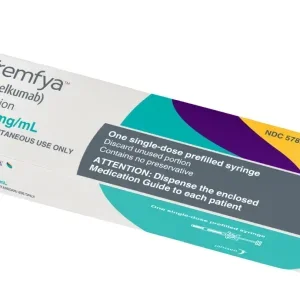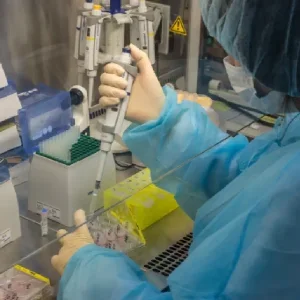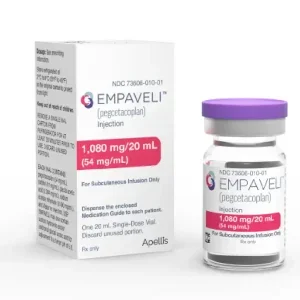Johnson & Johnson’s pharmaceutical business Janssen has secured the US Food and Drug Administration (FDA) approval for Spravato (esketamine) CIII nasal spray, to treat depression symptoms in major depressive disorder (MDD) patients.
The US regulatory agency has approved the company’s supplemental new drug application (sNDA) for Spravato, and approved the drug, in conjunction with an oral antidepressant, to treat symptoms of depression in MDD patients with acute suicidal ideation or behaviour.
Janssen Research and Development global neuroscience therapeutic area head Bill Martin said: “People living with major depression need more options to meet their most critical needs, and we’re proud to help redefine how we treat ongoing and acutely worsening depressive symptoms.
“Spravato can now help patients with challenging to treat depression find significant and swift relief from debilitating depressive symptoms, offering those living with this serious mental health condition the possibility of a better future.”
The FDA approved Spravato sNDA based on two similar Phase 3 clinical trials
Janssen said that Spravato is the only approved treatment capable of reducing depressive symptoms within 24 hours, and offers relief in symptoms for a long time until a treatment plan is executed.
Spravato CIII nasal spray is a non-selective, non-competitive competitor for the N-methyl-D-aspartate (NMDA) receptor, an ionotropic glutamate receptor, and has a novel mechanism of action than the available MDD therapies.
The FDA has approved the company’s sNDA for Spravato, based on two identical Phase 3 clinical trials, which demonstrated that the drug, plus standard of care rapidly reduced depressive symptoms within 24 hours, and few patients started responding within four hours.
The standard of care includes an initial hospitalisation, optimised oral antidepressant and twice-weekly treatment visits, administering Spravato 84mg or placebo nasal spray, for four weeks.
In the two clinical trials, Spravato plus standard of care resulted in a decrease of 15.9 and 16 points on the Montgomery-Åsberg Depression Rating Scale (MADRS), which measures the severity of depressive symptoms, compared to 12 and 12.2 points reduction with placebo plus standard of care.
Improvement in the severity of suicidality at 24 hours, measured using a standardised global scale, was a key secondary endpoint. Both divisions of the study equally reduced the severity of suicidality, and the treatment difference between the two groups was not statistically significant.
In the clinical trials, Spravato showed a safety profile consistent with previous studies of the drug for the treatment-resistant depression (TRD) and adds up to the established safety and efficacy evidence.
Esketamine clinical trial investigator Gerard Sanacora said: “It is astonishing to me that despite what we know about the risk of serious suicidal ideation in the context of major depression, patients with suicidal ideation have previously been excluded from nearly all studies examining antidepressant treatment efficacy.
“There is an immense need for high-quality evidence showing effective and rapid antidepressant action in this population.
“The clinical trials supporting this new indication provide compelling evidence that esketamine may offer clinicians a new way to provide support to patients quickly in the midst of an urgent depressive episode and help set them on the path to remission.”






